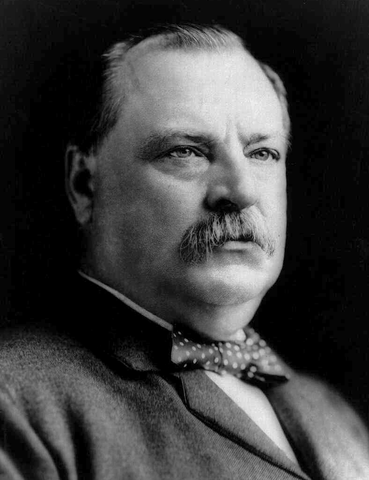Two Bad Teeth

George W. Bush was President of the United States from January 2001 until January of 2009, serving two consecutive terms. But during each of these terms, for about two to three hours, Bush temporarily handed control of the Presidency to his Vice President, Dick Cheney. In both cases, Bush was undergoing a colonoscopy, and the mild sedative required for his doctor to administer the test left him temporarily incapacitated. Citing Section 3 of the 25th Amendment to the Constitution, Bush temporarily ceded control of the Oval Office to his running mate, only recouping the powers after the sedative wore off.
This seems strange, but it makes sense. The President, after all, is only human, and medical advice doesn’t come with an “out” simply because the would-be patient also happens to reside in the White House. And some medical procedures require that the patient, President or otherwise, be unreachable or otherwise incapacitated. It would be a bad idea for the Presidency to be left, effectively, vacant, as the President hurries off for some sort of required treatment. So we’ve created a workaround.
But what if the President didn’t have this temporarily ability to transfer power? Or even if he did, what if he didn’t want the nation to know about a physical ailment or disease? In 1893, that is exactly what happened — and the President managed to not only hide his potentially fragile health, but also the surgery required to fix it.
Grover Cleveland’s claim to fame is his role as the answer to a middle school trivia question: “who is the only person to serve two non-consecutive terms as President?” Originally elected in 1884, he lost his re-election campaign in 1888 (despite receiving a plurality of the popular vote) to Benjamin Harrison. Four years later, he and Harrison faced off again, with Cleveland winning back the White House. But less than two weeks before Cleveland’s second term began, the Philadelphia and Reading Railroad declared bankruptcy. That incident is often cited as the first significant event in the economic downturn known as the Panic of 1893; Cleveland’s second term, therefore, came during troubled economic times.
In the summer of that same year, Cleveland went on vacation, setting out to sea on his friend’s yacht on July 1st. Despite the poor state of the economy, this wasn’t considered to be a very big deal — Congress was in recess anyway — and a four-day fishing trip was a perfectly reasonable respite. Most likely, no one would have thought anything of it, except that when Cleveland returned, he had a hard rubber dental prosthesis in his mouth. His doctors explained that the President had “two bad teeth,” and the false ones masked that.
The truth? Before the “fishing trip,” Cleveland’s doctors found a tumor in the roof of his mouth. Ulysses S. Grant had died from a throat cancer less than a decade before. As Futility Closet notes, Grant’s death “unsettled the nation.” With the economy in a fragile state, Cleveland did not want to cause any further concern (or so his advisors would later claim). So he had doctors set up a makeshift operating room on the yacht and, over the course of four days, underwent two surgeries. The first operation was to excise the tumor (which may not have been cancerous after all), which required the removal five of Cleveland’s teeth, his upper jaw, and part of his palate. The operation left the President disfigured and with slurred speech, so, a few days later, the doctors performed the second operation, outfitting him with the prosthesis.
Cleveland lived for more than a decade after this secret operation, passing away in 1908 at the age of 71. Knowledge of his oral surgery almost died with him, but In 1917, one of his doctors on the fishing trip wrote an article admitting the true nature of the “vacation.”
Bonus fact: Cleveland mostly stayed out of the political spotlight after leaving the White House, but he was known to occasionally make his views known on the issue of the day. For example, he was against giving women the right to vote. As Wikipedia notes, in 1905, he wrote an article for Ladies Home Journal arguing that “sensible and responsible women do not want to vote. The relative positions to be assumed by men and women in the working out of our civilization were assigned long ago by a higher intelligence.”
From the Archives: Grandpa President: Check out the bonus fact. (Read the main story, too.)
Related: Fake teeth… kind of.
